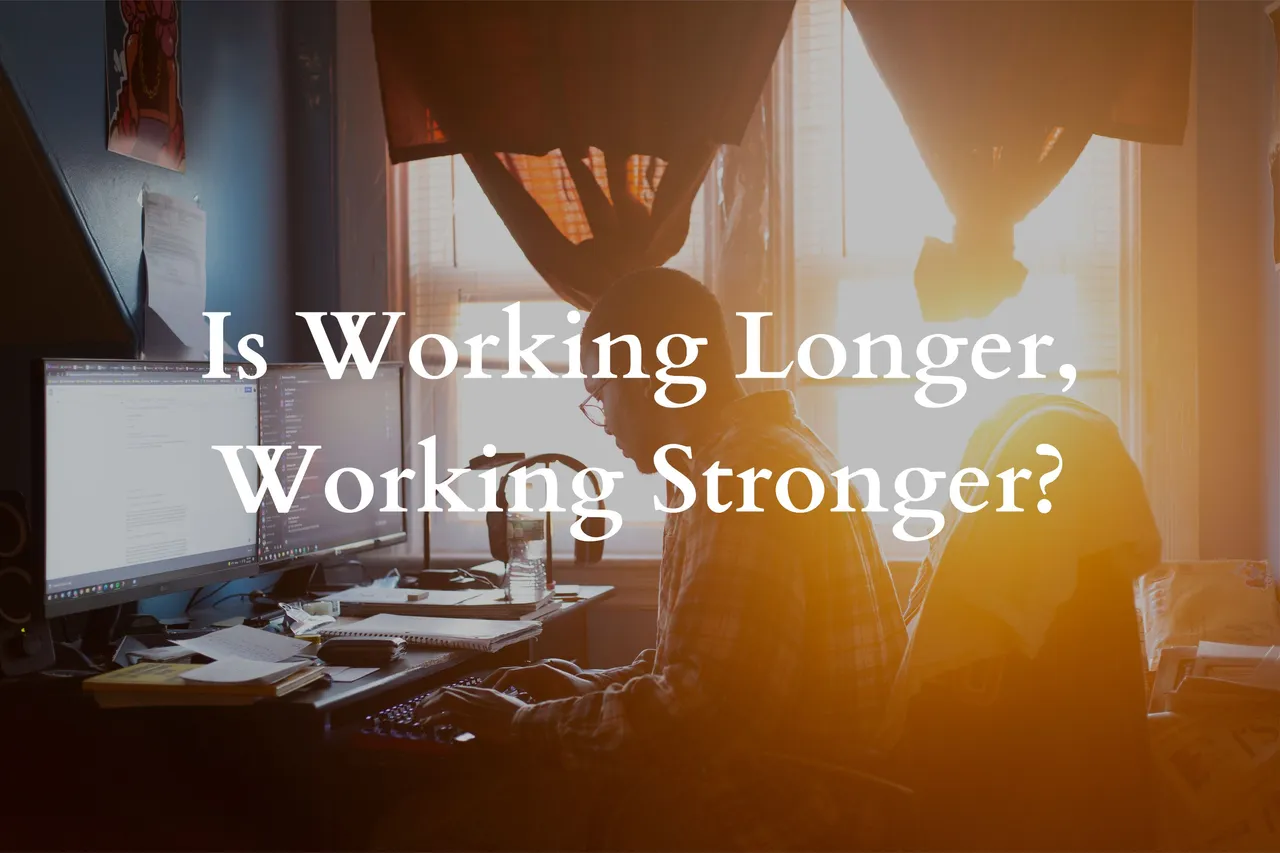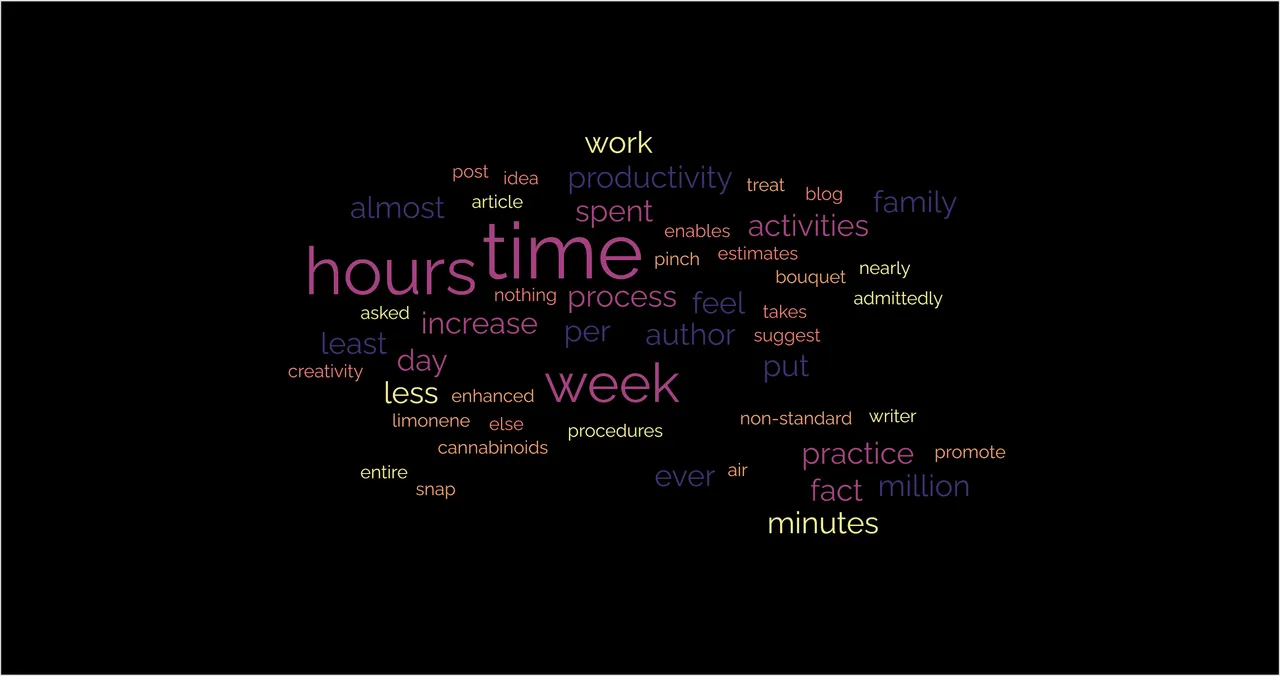
The Hottest of Takes
This article alone asked for nearly the entire day from this writer. Admittedly, some procedures are non-standard. I snap a pinch of the bouquet before most activities, as a practice and treat. Limonene and the other cannabinoids promote an enhanced air, which enables more creativity, if nothing else. Estimates suggest that from an idea to a blog post, the process takes 3 to 5 hours, all things constant.
The rate could increase, given time, practice and more resources. That's a simple assumption. How much would it increase, however, if I spent about 70 hours a week? That seemingly arbitrary figures has an interesting origin, in fact.
Comparing India’s current worker and productivity situation to those of Germany and Japan after the Second World War, Infosys co-founder Narayana Murthy has suggested that the country’s young workers should be committing at least 70 hours of their time per week.

The concept baffles the mind so much sentences start to run on. The only cuckoo clocks I've ever seen are animated, but it's illustrative of some perspectives time to time. It rings alarm bells over and over again. Could I put out twice the articles in a week if I tried? Maybe. Would almost doubling the corporate workweek benefit most people? Man dubious.
Despite a desire to avoid many links, readers might find an interest in the fact that from the 2022 Bureau of Labor Stats data, the cost of raising a family with two kids from birth to 22 years old, was $2.7 million dollars. So, the family asks for almost 3 million of you, the boss wants 70 hours... The requests feel stacked against the average player. Anything is possible, but what are these requests?

In Context
While a tech company CEO's perspective might not dictate our lives, he testifies to having made a similar commitment. This author writes hyperbole for magic internet money and consequently remains unconvinced anyone ever put 85 hours into any type of work per week. The truth looks plain. "That's not healthy," in bold face print on a white T-shirt.

Even as a process, to aim for extremely high levels of productivity in activities lacks balance. Coupled with the low likelihood one could sustain the behavior, working cultures like those present in some Asian countries ultimately undermine the real opportunity.
Intentional planning of ones time would make a greater difference with less time spent. Fifteen minutes each morning at least prioritized that I write my thoughts each day so far for 14 weeks. Then, comes the challenge:
Before your next endeavor, take no more than 15 minutes to form a plan first. Then, proceed as planned. Record your feelings afterwards.
I feel you'll accomplish more than you would with longer hours. It's a paradox of choice, that less is more, but work favors quality over quantity.
